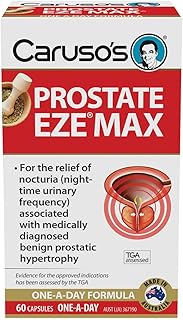Urinary tract infections and urosepsis are significant complications that can occur following transrectal ultrasound-guided prostate biopsy. These infections can be caused by a variety of pathogens, leading to a spectrum of symptoms and potential antibiotic resistance challenges.
Prostate biopsy is a common procedure used to diagnose prostate cancer, but it is not without risks. The use of ultrasound guidance has improved the accuracy of biopsies, but it also introduces the risk of introducing bacteria from the rectum into the urinary tract.
The prevalence of urinary tract infections following prostate biopsy varies, with studies reporting rates ranging from 2% to 10%. Urosepsis, a severe infection that can result from untreated urinary tract infections, is less common but can have serious consequences if not promptly diagnosed and treated.
One of the key challenges in managing post-biopsy infections is the increasing prevalence of antibiotic-resistant bacteria. This trend has been observed globally and poses a significant threat to the effective treatment of infections associated with invasive procedures like prostate biopsy.
Experts emphasize the importance of appropriate antibiotic prophylaxis before prostate biopsy to reduce the risk of infection. However, the choice of antibiotics must be carefully considered to account for local patterns of resistance and minimize the development of further resistance.
Studies have shown that fluoroquinolones, a commonly used class of antibiotics for prophylaxis, are becoming less effective due to rising resistance rates. This has led to a reevaluation of antibiotic regimens and a search for alternative strategies to prevent post-biopsy infections.
Healthcare providers are increasingly turning to strategies such as targeted antibiotic prophylaxis based on individual patient risk factors and the results of rectal swab cultures to tailor treatment to specific pathogens and reduce unnecessary antibiotic exposure.
Improvements in infection control practices, including thorough sterile techniques during biopsy procedures and proper catheterization protocols, are also essential in reducing the risk of post-biopsy infections.
Given the potential complications associated with post-biopsy infections, ongoing research is focused on developing new approaches to reduce infection rates and improve patient outcomes. This includes investigating the use of novel antimicrobial agents and exploring the role of probiotics in promoting a healthy microbiome to prevent infection.
Ultimately, the management of urinary tract infections and urosepsis following prostate biopsy requires a multidisciplinary approach that integrates urologists, infectious disease specialists, microbiologists, and other healthcare professionals to ensure optimal patient care and outcomes.
📰 Related Articles
- US Study Visa Delays: Challenges & Strategies for International Students
- Hospitality Sector Challenges and Growth Strategies in Nigeria
- Government Faces Challenges Managing Australia’s Student Visa Boom
- Europe Adapts: Sustainable Tourism Strategies Address Overtourism Challenges
- AI’s Impact on Medical Education: Challenges and Strategies






